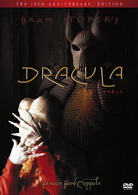基本説明
Contains a review of empirical literature on irrational beliefs.
Full Description
In Rational and Irrational Beliefs: Research, Theory, and Clinical Practice, leading scholars, researchers, and practitioners of rational emotive behavior therapy (REBT) and other cognitive-behavioral therapies (CBTs) share their perspectives and empirical findings on the nature of rational and irrational beliefs, the role of beliefs as mediators of functional and dysfunctional emotions and behaviors, and clinical approaches to modifying irrational beliefs, enhancing rational beliefs, and adaptive coping in the face of stressful life events. Offering a comprehensive and cohesive approach to understanding REBT/CBT and its central constructs of rational and irrational beliefs, contributors review a steadily accumulating empirical literature indicating that irrational beliefs are associated with a wide range of problems in living and that exposure to rational self-statements can decrease anxiety and other psychological symptoms, and play a valuable role in health promotion and disease prevention. Contributors also identify new frontiers of research and theory, including the link between irrational beliefs and other cognitive processes such as memory, psychophysiological responses, and evolutionary and cultural determinants of rational and irrational beliefs.
A truly accessible, state-of-the-science summary of REBT/CBT research and clinical applications, Rational and Irrational Beliefs is an invaluable resource for psychotherapy practitioners of all theoretical orientations, as well as instructors, students, and academic psychologists.
Contents
PART I: FOUNDATIONS ; 1. Rational and Irrational Beliefs: A Conceptual and Historical Perspective, Albert Ellis, Daniel David, and Steven Jay Lynn ; 2. Rationality and Rational Psychotherapy: The Heart of REBT, Arthur Still ; 3. Social and Cultural Aspects of Rational and Irrational Beliefs: A brief re-conceptualization, Daniel David and Raymond DiGiuseppe ; 4. Rational and Irrational Beliefs from an Evolutionary Perspective, David Sloan Wilson ; PART II: RATIONAL AND IRRATIONAL BELIEFS: HUMAN EMOTIONS AND BEHAVIORAL CONSEQUENCES ; 5. Rational and Irrational Beliefs in Human Feelings and Psychophysiology, Daniel David and Duncan Cramer ; 6. The Behavioral Consequences of Irrational Beliefs, Aurora Szentagotai and Jason Jones ; PART III: CLINICAL APPLICATIONS ; 7. The Assessment of Irrational and Rational Beliefs, Bianca Macavei and James McMahon ; 8. Rational and Irrational Beliefs and Psychopathology, Christopher M. Browne, Thomas Dowd, and Arthur Freeman ; 9. Rational and irrational beliefs. Implication for clinical conceptualization and practice in psychotherapy, Daniel David, Arthur Freeman, and Raymond DiGiuseppe ; 10. Mindfulness and Irrational Beliefs, David Mellinger ; 11. Rational and Irrational Beliefs in Primary Prevention and Mental Health, Donald A. Caserta, Thomas Dowd, Daniel David, and Albert Ellis ; Part IV: PHYSICAL HEALTH AND PAIN ; 12. Irrational and rational beliefs and physical health, Julie Schnur, Guy Montgomery, and Daniel David ; 13. Coping and Catastrophic Thinking: The Experience and Treatment of Chronic , Dawn M. Ehde and Mark P. Jensen ; PART V: JUDGMENT ERRORS AND POPULAR MYTHS AND MISCONCEPTIONS ; 14. Irrational Beliefs Stemming from Judgment Errors: Cognitive Limitations, Biases, and Experiential Learning, John Ruscio ; 15. The Five Great Myths of Popular Psychology: Implications for Psychotherapy, Scott Lilienfeld, Steven Jay Lynn, and Barry Beyerstein ; PART VI - A LOOK TO THE FUTURE ; 16. A Summary and a New Research Agenda for Rational-Emotive and Cognitive-Behavior Therapy, Daniel David and Steven Jay Lynn ; Index







